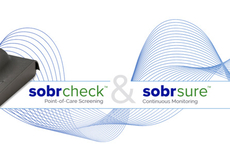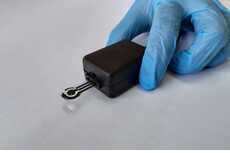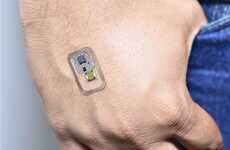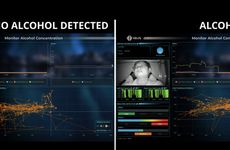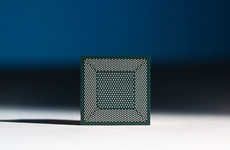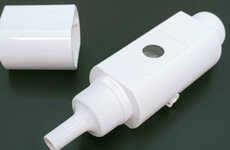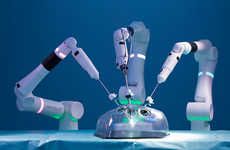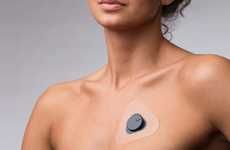
This High-Tech Chip Can Help Monitor Alcohol Consumption Levels
Rahul Kalvapalle — April 15, 2018 — Lifestyle
References: jacobsschool.ucsd.edu & newatlas
A group of scientists and engineers led by professor Drew Hall at the University of California San Diego have developed a high-tech implantable chip that is designed to be able to assess the amount of alcohol that the wearer is consumed.
This implantable chip comprises a trio of sensors, one of which is coated with a special enzyme that interacts only with alcohol in order to produce a distinct electrochemical signal that can then be detected by the other sensors, which also work to mitigate noise signals in order to offer a precise alcohol reading. The alcohol reading data can then be displayed on a smartwatch.
What's great about this implantable chip is that it consumes very little energy, and can be seamlessly injected under the skin. This technology has great potential to improve abstinence rates among recovering alcoholics in addiction treatment programs.
This implantable chip comprises a trio of sensors, one of which is coated with a special enzyme that interacts only with alcohol in order to produce a distinct electrochemical signal that can then be detected by the other sensors, which also work to mitigate noise signals in order to offer a precise alcohol reading. The alcohol reading data can then be displayed on a smartwatch.
What's great about this implantable chip is that it consumes very little energy, and can be seamlessly injected under the skin. This technology has great potential to improve abstinence rates among recovering alcoholics in addiction treatment programs.
Trend Themes
1. Implantable Biosensors - The development of implantable biosensors for monitoring health parameters offers a disruptive innovation opportunity for the medical technology industry.
2. Wearable Data Integration - Integrating data from implantable biosensors with wearable devices such as smartwatches and fitness trackers creates a new frontier for personalized healthcare.
3. Precision Health Monitoring - Advancements in precision health monitoring technologies like the alcohol-detecting implantable chip will transform the healthcare industry by allowing for targeted treatment plans.
Industry Implications
1. Medical Technology - The development of implantable biosensors for precision health monitoring opens up new opportunities for the medical technology industry to innovate and improve patient outcomes.
2. Addiction Treatment - The alcohol-detecting implantable chip has the potential to revolutionize addiction treatment programs by providing real-time alcohol consumption data for recovering alcoholics.
3. Wearable Technology - Wearable technology companies can leverage the integration of data from implantable biosensors to create more personalized and actionable insights for their users.
4
Score
Popularity
Activity
Freshness


